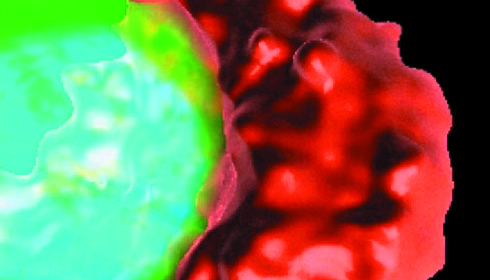
Global Surge in Early-Onset Colorectal Cancer Sparks Concern
The Lancet Oncology published a new study from the American Cancer Society (ACS) revealing an alarming global increase in early-onset colorectal cancer (CRC) among adults aged 25 to 49. Dr. Hyuna Sung conducted the study, which looked at CRC trends in 50 nations and found that incidence rates were growing in 27 of them. This tendency, formerly observed only in high-income Western countries, has recently been documented across multiple economies and geographies, indicating a worldwide health challenge.
The study, which examined CRC data from 1943 to 2017, found average annual percentage increases (AAPCs) in early-onset CRC rates during the previous decade. New Zealand, Chile, and Puerto Rico experienced the most dramatic increases, with yearly increases of 4.0%, 4.0%, and 3.8%, respectively. Notably, in 14 nations, including the United States, CRC rates rose in younger persons while remaining stable or dropping in those aged 50 and over.
"The increase in early-onset colorectal cancer is a global phenomenon," according to Dr. Sung. "This trend underscores the urgent need for innovative tools to prevent and control cancers linked to dietary habits, physical inactivity, and excess body weight."
The study also discovered gender disparities in the rate of growth. While men witnessed faster growth in Chile, Puerto Rico, and Sweden, young women saw bigger gains in England, Australia, and Norway.
The incidence of early-onset CRC varies greatly around the world. Over the last five years, countries such as Australia, Puerto Rico, and South Korea had the highest rates (14–17 per 100,000), while Uganda and India had the lowest (4 per 100,000). These discrepancies hint at the potential impact of lifestyle, healthcare access, and genetics.
Michelle Mitchell, CEO of Cancer Research UK, emphasized the urgency of addressing this trend, especially in nations such as England, where rates are rising faster than in many others. "A cancer diagnosis at any age has a huge impact on patients and their families," she told reporters. "While rates among younger adults remain relatively low compared to those over 50, we must uncover the underlying causes to develop targeted prevention strategies."
This increase in early-onset CRC provides a twofold challenge: boosting awareness among younger populations and healthcare providers while also progressing research into causal variables. Younger people frequently overlook symptoms such as rectal bleeding, stomach pain, altered bowel habits, and unexplained weight loss, leading to delayed diagnoses and poorer results.
Dr. Sung emphasized the need for early identification and preventive activities, such as public awareness campaigns and novel research projects. "Identifying additional factors behind these trends and developing effective strategies tailored to younger generations and local resources worldwide is essential," she told me.
Mitchell cited global research initiatives such as the Cancer Grand Challenges team PROSPECT, which has been awarded £20 million to examine the causes of early-onset bowel cancer and prevention measures.
The study's findings represent a call to action for healthcare institutions, researchers, and governments globally. As CRC rates among young adults continue to grow, coordinated global initiatives will be critical for understanding and controlling this trend. By addressing risk factors like nutrition, lifestyle, and obesity, as well as investing in early detection and education, the global community may help reverse this disturbing trend.